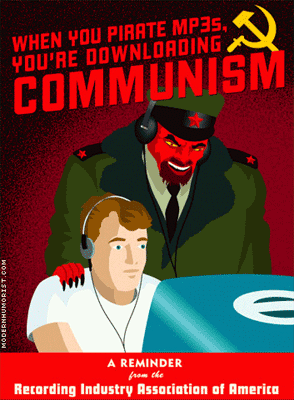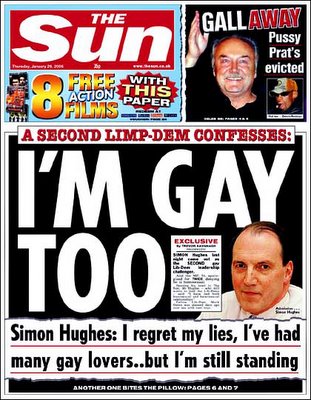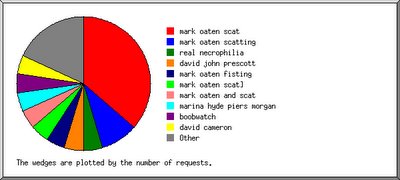File-sharing shame.

I hope that Mr Justice Lawrence Collins is thoroughly ashamed of himself. Imposing ridiculous fines on file sharers who would not have bought the music in the first place and giving over money to the record companies who have fleeced fans and musicians for decades seems to sum up our plutocratic society:
A high court ruling has forced two men to stop sharing pirated songs on the internet, with a judge warning that ignorance of the law is no defence. The men were ordered to pay thousands of pounds in damages and costs after refusing to settle their civil cases with the trade body the British Phonographic Industry. Cases against three other people are pending.
The first defendant, from Kings Lynn in Norfolk, argued the BPI had no direct evidence of any infringement. His defence was rejected and he was ordered to pay £5,000 immediately, with his total bill likely to top £13,500.
A Brighton postman's argument that he was unaware that what he was doing was illegal and that he did not seek to gain financially was dismissed by Mr Justice Lawrence Collins who said: "Ignorance is not a defence." He was ordered to make a immediate payment of £1,500, pending a decision on costs and damages.
The majority of the 139 cases launched against illegal filesharers since October 2004 have been settled before reaching court, with those accused paying fines of up to £6,500 and promising to stop sharing songs over the internet.
Those on the receiving end of the latest tranche of 51 cases, launched in December, have until the end of the month to settle. A number have had to settle on behalf of their children, despite being unaware that they were breaking the law.
The record industry only points to the collapse in singles sales, as it knows full well that album sales at least in the UK have grown over the last couple of years. The decline of the single can be linked to the imposition of rules on how long they could be in order to qualify for the singles chart. As a result, companies often issue two CDs for just one song to cover b-sides and remixes, charging twice for what they would have once charged for just once. Along with the rise of crap manufactured pop, and records only ever staying on top for one week, people lost their interest in singles and instead focused on albums. Only now are singles starting to come out of their decline, thanks to the rise of new UK indie rock and amazingly, the 7" vinyl making a come back.
The BPI also ignores how many bands and artists have themselves encouraged file sharing or have admitted to using it. Obviously their own stars are excused. The last straw in the BPI's argument should be the rise of Arctic Monkeys, who established themselves through file-sharing of their demo and their online presence. The only thing motivating the BPI is pure greed, and for a Judge to impose such uneccesary fines will only encourage them further.








